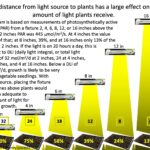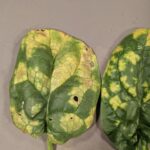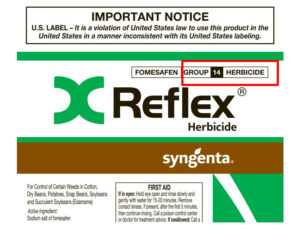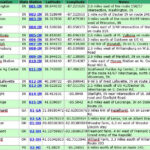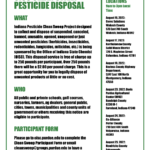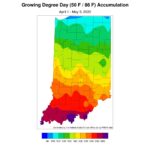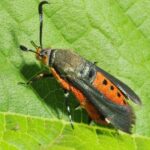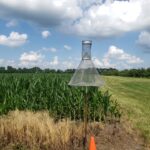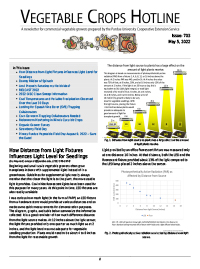Downy mildew of spinach can be an important disease of spinach. The lesions are often a bright yellow with irregular margins (Figure 1). With time, these lesions can become a light brown. The underside of the lesion is dark black or purple under moist conditions. Under very conducive conditions, sporulation can occur on the top[Read More…]
Using herbicides with different modes of action is one way to more effectively control weeds and avoid or delay herbicide resistance. But how do you know if you are rotating herbicides properly? Group Numbers. Most herbicide labels have a herbicide Group number on the front page, usually above or next to the product’s trade name[Read More…]
MELCAST is a weather-based disease-forecasting program that helps growers schedule foliar fungicide applications for watermelon and cantaloupe. MELCAST stands for MELon disease for CASTer. This program, designed by Dr. Rick Latin, Emeritus Professor of Plant Pathology at Purdue University, keeps track of weather conditions so that cantaloupe and watermelon growers can apply foliar fungicides to their crops when they[Read More…]
WHAT: An OISC Pesticide Clean Sweep Project designed to collect and dispose of suspended, canceled, banned, unusable, opened, unopened or just unwanted pesticides (herbicides, insecticides, rodenticides, fungicides, miticides, etc.) is being sponsored by the Office of Indiana State Chemist (OISC). This disposal service is free of charge up to 250 pounds per participant. Over 250[Read More…]
Over the last 30 days (April 3 – May 2), average temperatures ran below normal for most of the state (Figure 1). Southern Indiana temperature departures were near normal to 1°F below normal. Larger temperature departures (1 – 4°F below normal) were observed in central and northern Indiana. Many areas experienced their first 80°F or[Read More…]
While it is not so much of a problem on large farms, with many acres of cucurbits, small farms and organic growers tend to be the most impacted by this pest. The squash vine borer (Figure 1) is a member of the clear-winged moths, a unique group of moths that are active during the daytime.[Read More…]
Once again this year I will be monitoring corn earworm flights throughout the state. Be sure to check the CEW trapping website for updates daily. If you produce sweetcorn or popcorn and are interested in hosting a trap, please contact me at (765) 494-6167 or lingwell@purdue.edu. I will provide the trap and the lure, but[Read More…]
Announcement from University of Illinois specialty crop entomology lab: We are monitoring for melonworms throughout the state this year! Last year, several of our pumpkin growers in the area had a late season infestation of caterpillars eating their pumpkins. The specialty crops entomology lab and U of I Extension are going to be investigating this[Read More…]
Are you a certified organic farmer producing fruits, vegetables, or nuts? Purdue is participating in a multi-state project to help you navigate National Organic Program standards and third-party food safety certification. We have put together a voluntary survey to collect information on your experiences in this space. Our goal with this survey is to identify[Read More…]
It is the policy of the Purdue University that all persons have equal opportunity and access to its educational programs, services, activities, and facilities without regard to race, religion, color, sex, age, national origin or ancestry, marital status, parental status, sexual orientation, disability or status as a veteran. Purdue is an Affirmative Action Institution. This material may be available in alternative formats. 1-888-EXT-INFO Disclaimer: Reference to products in this publication is not intended to be an endorsement to the exclusion of others which may have similar uses. Any person using products listed in this publication assumes full responsibility for their use in accordance with current directions of the manufacturer.
